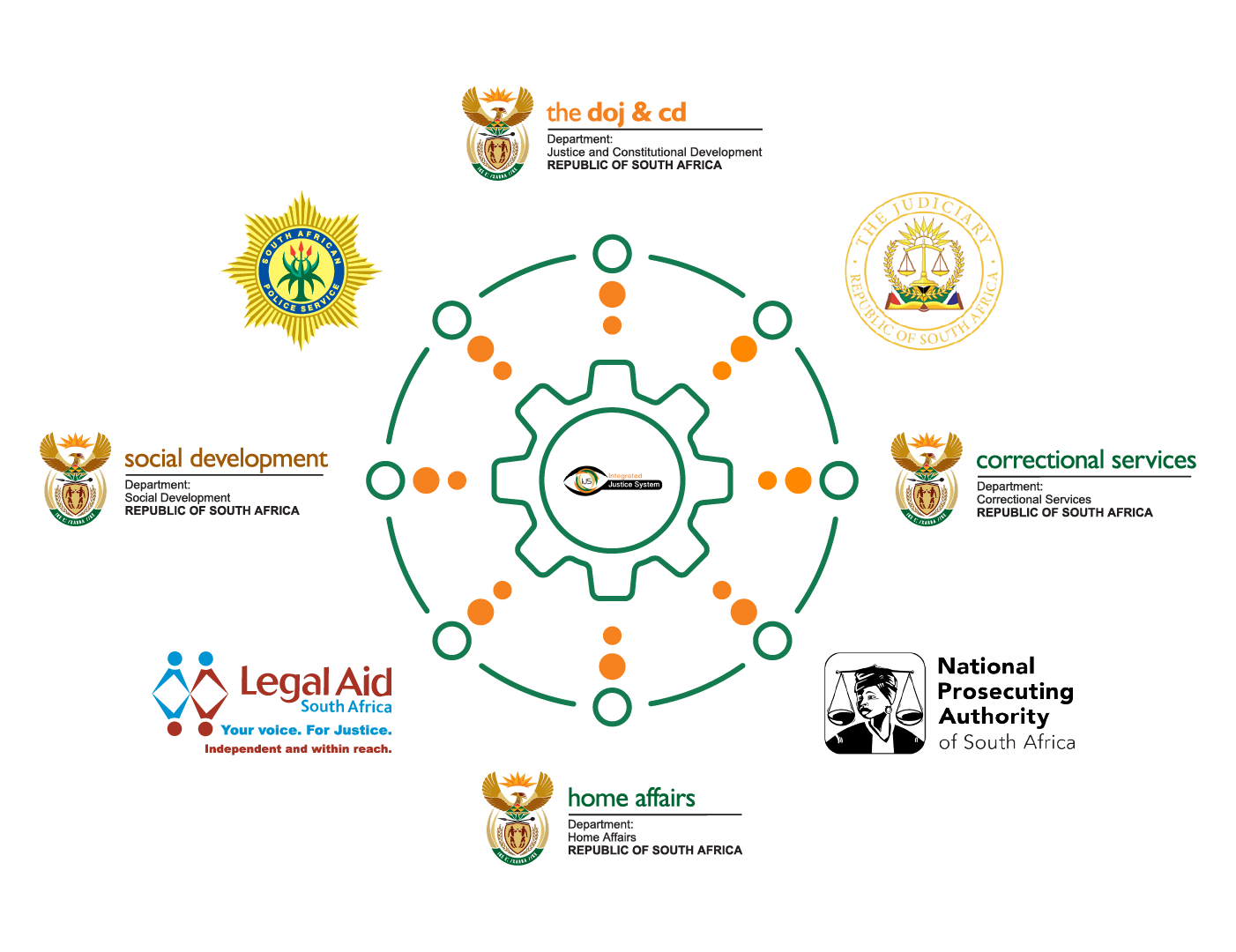
The Integrated Justice System (IJS) Programme was initiated following the approval of the National Crime Prevention Strategy by the South African Cabinet in 1996, aiming to modernize the Criminal Justice System.
The programme was given further impetus by the Review of the Criminal Justice System, known as "The seven-point plan" in 2007, and Outcome 3 of the Justice, Crime Prevention and Security (JCPS) Cluster Delivery Agreement, which focuses on the safety of all South Africans. The National Development Plan (NDP vision 2030) also supports The National Crime Prevention Strategy (1996), which sought to modernize the Criminal Justice System.
Four national government departments—the Department of Justice & Constitutional Development, the Department of Correctional Services, the Department of Social Development, and Safety and Security (now the South African Police Service)—worked together to create an Interdependent Board known as the IJS User Board in response to this tactic. A thorough review of the Criminal Justice System (CJS) was commissioned by the board in 1997 and carried out by the Molweni Consortium.
The conclusions proved that the CJS was overflowing, rife with serious inefficiencies, that case management was deficient, that court backlogs were enormous, and that overall, the provisions were overcrowded with a rising number of awaiting trial prisoners. Based on the new CJS technological system, the original concept envisioned a total redesign of the CJS.
The initial strategy in 2000 conceived a complete overhaul of the criminal justice system, underpinned by a new technology system. However, subsequent analysis revealed this approach was neither feasible nor affordable.
In 2011, the IJS Board was reconstituted to include representatives from all government departments handling criminal justice matters. The IJS Board revised the plan to adopt a modular and iterative approach after realizing that a new approach was required.
This integrated board oversaw the flow of data across all departments to deal with business processes holistically. The modern era started in 2017 when the cabinet approved a more holistic approach to modernizing the criminal justice system. The aim was ensuring appropriate levels of reform across all areas and elements to create an effective, efficient system.
The IJS Member departments have taken proactive steps to address key issues within the justice system, such as overcrowding in correctional facilities and delays in the legal process. Quick fix projects and fast-track initiatives have been implemented to streamline operations and improve efficiency.
In 2017, the South African cabinet approved a more holistic approach to modernizing the criminal justice system with the aim of ensuring the appropriate levels of reform across all areas and elements of the Criminal Justice System. This took the form of the Integrated Criminal Justice System Strategic (ICJS) Framework which outlines five themes for the overhaul of the criminal justice system, which includes modernizing the integrated justice system to be technology-based. The ICJS outlines the role of IJS to lead, drive and implement this, complimentary to the overall ICJS strategic goals.
Our commitment to delivering justice and security is unwavering, and we strive to continuously improve the Integrated Justice System for the benefit of all stakeholders.
Please wait...